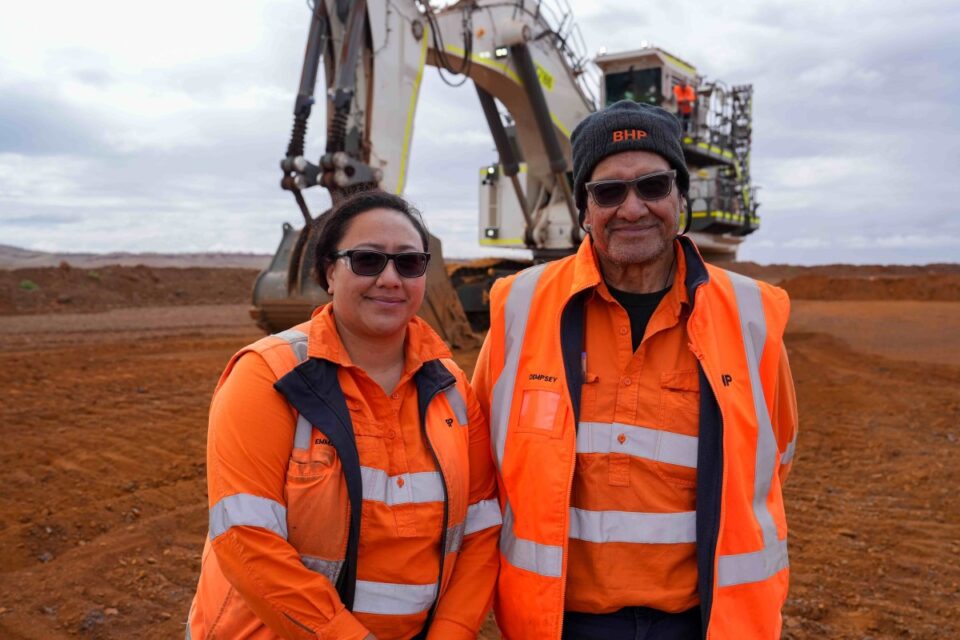BHP has taken another important step on our operational decarbonisation journey with the first electric excavator in BHP’s fleet now operational at our Yandi iron ore mine in the Pilbara, Western Australia.
Instead of a diesel engine, the R 9400 E Liebherr electric excavator has an electric motor, with power fed to the machine by a trailing cable.
Equipped with Liebherr’s autonomous cable reeler for optimal on-site mobility, this innovation boosts productivity and operator safety.
Western Australia Iron Ore (WAIO) Asset President Tim Day said reducing diesel in our business was key to helping us achieve our medium-term target to reduce operational greenhouse gas (GHG) emissions (Scopes 1 and 2 from our operated assets) by at least 30 per cent by FY2030 (from adjusted FY2020 levels) – and ultimately our long-term goal of net zero operational GHG emissions by CY2050.
“Electrification of our fleet is our preferred solution to displace greenhouse gas emissions from using diesel – from trucks to trains to excavators – we’re working hard to electrify our equipment,” Tim said.
“Collaborations with partners like Liebherr are critical to accelerate development of the technology required to reduce diesel emissions, while ensuring we continue to improve the safety and productivity of our operations.”
Brian Boitano, Executive General Manager, Sales and Marketing, Liebherr-Australia said: “The R 9400 E is a testament to Liebherr’s dedication to providing innovative and efficient zero emission solutions for the mining sector.
“We are thrilled to partner with BHP, a forward-thinking industry leader, to introduce our proven electric excavators into their operations and to help them move forward in their decarbonisation journey.”
This milestone not only underscores BHP’s commitment to adopting cutting-edge technologies but also highlights Liebherr’s role as a trusted partner and solutions provider within the mining sector.
Our strategy aims to decarbonise our mining equipment by switching from diesel to renewable electricity or other low to zero GHG emissions power. Renewable electricity is not purchased through the market as WAIO is not connected to an existing grid, so we are working through the best way to introduce the large volumes of renewable or other low to zero emissions power that we will need.
This includes a number of actions to decarbonise our sites, with a focus on maximising renewable electricity and other sources of low to zero GHG emissions power, diesel displacement through electrification, and working to manage fugitive methane emissions.


